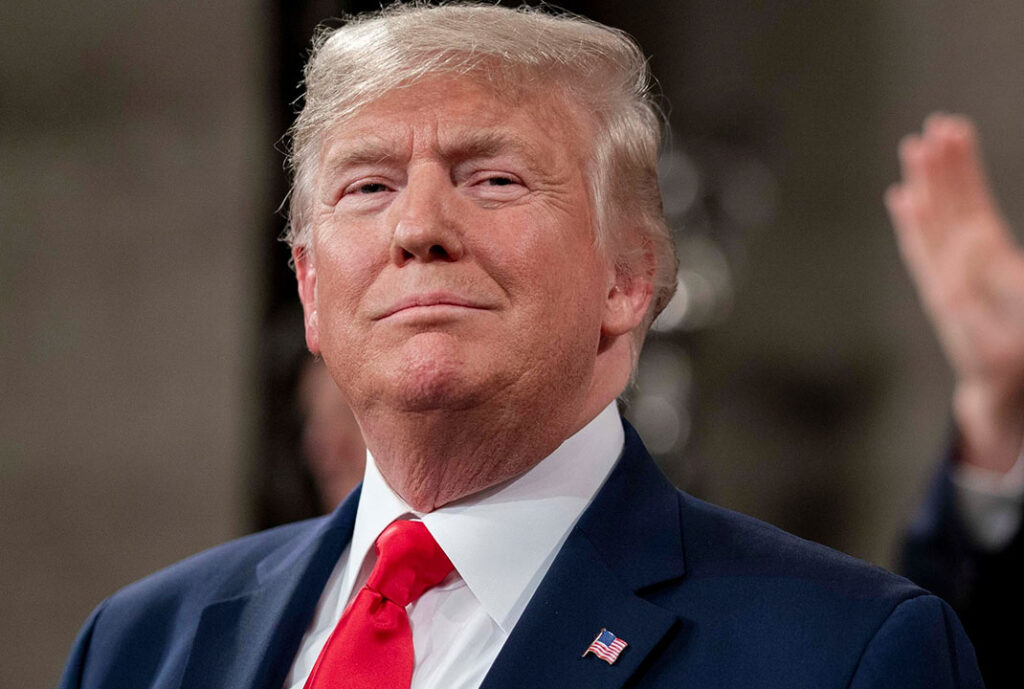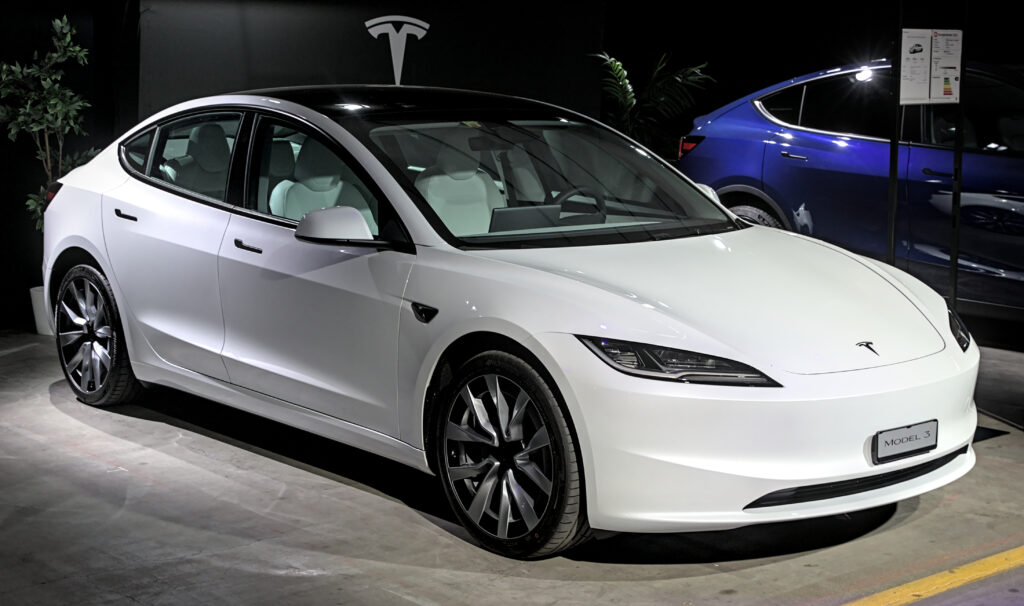In a move that has stirred both political and financial circles, former President Donald Trump announced plans to buy a brand new Tesla. This unexpected gesture, aimed at showing confidence in Tesla’s chief, Elon Musk, comes at a time when the electric vehicle giant is grappling with protests, plummeting stock prices, and an increasingly complex relationship with politics. As the dust settles over a series of high-profile demonstrations and market jitters, Trump’s declaration is more than just a personal endorsement—it is a symbolic statement in a charged atmosphere.
A Statement in Uncertain Times
At a time when Tesla’s market capitalization has been on a steep decline—erasing much of the momentum built after Musk’s role in past political events—Trump’s announcement resonated as an act of support for a figure who has consistently courted controversy. Speaking on his social media platform, Truth Social, Trump declared his intent to purchase a new Tesla “as a show of confidence and support for Elon Musk, a truly great American.” The announcement is notable not just for its political implications but also for its potential impact on investor sentiment, at a moment when Tesla’s stock has more than halved from its previous record highs.
The Turbulent Backdrop: Protests and Political Unrest
The backdrop to Trump’s Tesla endorsement is one of significant unrest. Recent protests—referred to by some as the “Tesla Takedown”—have unfolded in various parts of the United States, driven by discontent over Musk’s political associations and the broader implications of his influence on governmental policies. Demonstrators have converged on Tesla dealerships in cities like Portland, Oregon, where around 350 protesters gathered, and in New York City, where clashes outside a Tesla dealership led to multiple arrests. These events highlight the growing polarization surrounding the intersection of business, politics, and environmental policy.
Critics of Musk point to his involvement in what has been labeled as the
administration’s Department of Government Efficiency (DOGE), a controversial initiative that aimed to implement sweeping cuts to the federal workforce. This association has spurred further protests, with activists arguing that such moves, which many see as politically motivated, have real-world consequences for communities and government employees. Amid this milieu, Trump’s planned purchase of a Tesla car is not merely a consumer decision—it is a political statement intended to counter the negative narrative and reaffirm support for Musk and his vision.

Political Alliances and Market Reactions
The relationship between Trump and Musk has been a subject of intense scrutiny. Historically, Musk has maintained a complex rapport with political figures, and his recent efforts to back Trump’s policies have drawn both praise and criticism. Trump’s endorsement, delivered through the promise of buying a Tesla, underscores an alliance that is as much about shared political beliefs as it is about economic interests.
Investors, however, have been reacting cautiously. Tesla’s market capitalization, once soaring near the $1.5 trillion mark, has now experienced a significant setback. The downturn has been attributed to multiple factors, including falling vehicle sales and profits, as well as concerns that Musk’s political activities might distract him from focusing on the company’s core operations. For many shareholders, the steep decline in Tesla’s stock price is a red flag—one that raises serious questions about the long-term implications of intertwining politics with business.
The Symbolism Behind the Purchase
Trump’s decision to purchase a new Tesla can be seen as a symbolic counterweight to the protests and negative market trends. By publicly aligning himself with Musk, Trump not only signals his support for the business leader but also challenges critics who claim that political interference is undermining the company’s performance. In doing so, he invites a broader debate about the role of political advocacy in the corporate world.
Elon Musk, for his part, did not shy away from acknowledging Trump’s support. In a gesture of mutual recognition, Musk expressed gratitude on his social media platform, X, reinforcing the notion that the two figures, despite their differences in approach and background, share a common interest in advancing a particular vision for America’s future.
A Closer Look at the Economic Impact
Beyond the political theater, the economic stakes are high. Tesla’s fluctuating stock price is more than a measure of market sentiment—it reflects the broader uncertainties that many technology and automotive companies face in an increasingly volatile economic environment. Factors such as falling vehicle sales and a global economic slowdown have compounded the company’s woes, leading investors to scrutinize every decision made by Musk and his allies.
The implications of Tesla’s financial performance extend beyond the company itself. A robust stock market performance for Tesla has often been seen as a bellwether for the tech and green energy sectors. Therefore, Trump’s public endorsement may be interpreted as an attempt to boost investor confidence and stabilize market perceptions. However, whether such symbolic gestures can translate into tangible market recovery remains an open question.
The Broader Debate: Politics, Business, and Public Perception
Trump’s announcement has ignited a broader debate over the influence of politics on business decisions and the responsibilities of public figures. Critics argue that when political leaders publicly endorse specific companies, it creates an uneven playing field—one where business success becomes intertwined with political loyalty. Supporters, on the other hand, claim that such endorsements are a natural extension of free-market principles, where political figures are free to express their opinions and support companies they believe are driving innovation and economic growth.
This debate is particularly relevant in the case of Tesla, a company that has long positioned itself at the intersection of cutting-edge technology and progressive environmental policies. The tension between its innovative aspirations and its political entanglements underscores the challenges faced by modern corporations. As public opinion becomes increasingly polarized, companies like Tesla must navigate a complex landscape where market performance, political affiliations, and public trust are inextricably linked.

Looking Forward: What Does the Future Hold?
As the dust settles on this latest chapter of political theater and market volatility, the future of Tesla and its key players remains uncertain. Trump’s bold declaration and subsequent actions are likely to reverberate through both political and financial arenas. For investors, the critical question is whether symbolic gestures can reinvigorate confidence in a company currently grappling with a host of challenges.
For Tesla, the path forward will require a delicate balancing act. On one hand, the company must continue to innovate and deliver on its promises of sustainable transportation and technological advancement. On the other, it must navigate the choppy waters of political controversy—a task that becomes all the more difficult when the stakes are so high.
The protests against Tesla, along with the drastic shifts in its market valuation, suggest that the company is at a crossroads. If it is to regain its footing, Tesla will need to address the concerns of both its critics and its investors, demonstrating that its core mission is not compromised by political entanglements. Achieving this balance will be critical not only for Tesla’s future success but also for maintaining public trust in the emerging green economy.
Concluding Thoughts
Trump’s announcement to purchase a new Tesla is emblematic of a broader struggle in today’s society—a struggle where politics, economics, and public sentiment collide. His gesture of support for Elon Musk is laden with symbolism, aimed at countering negative perceptions while reinvigorating investor confidence. Yet, it also raises critical questions about the role of political endorsements in shaping corporate destinies.
In a time when market volatility is a constant threat and political affiliations increasingly influence business decisions, the true test for Tesla will be its ability to remain focused on innovation and customer satisfaction. The company’s challenges are manifold: from managing declining sales and profits to navigating the fallout of high-profile protests and political controversies.
As Tesla’s journey continues, the interplay between political symbolism and economic performance will remain a key area of interest for analysts, investors, and the general public alike. The coming months will likely reveal whether Trump’s high-profile endorsement can shift the tide or if it will merely be a footnote in a larger narrative of market uncertainty and political discord.
Ultimately, the story of Trump’s Tesla purchase is not just about a car—it is about the complex dynamics that govern modern governance, business strategy, and public perception. In an era defined by rapid change and fierce ideological battles, such symbolic gestures remind us that the lines between politics and commerce are more blurred than ever before. Whether this bold move will translate into a lasting impact on Tesla’s fortunes or serve as a temporary diversion in an already turbulent market remains to be seen. For now, the world watches, debates, and waits for the next chapter in this unfolding saga.











2 thoughts on “Trump’s Bold Move: A New Tesla Purchase as a Statement of Support for Elon Musk Amid Political Turbulence and Market Woes”